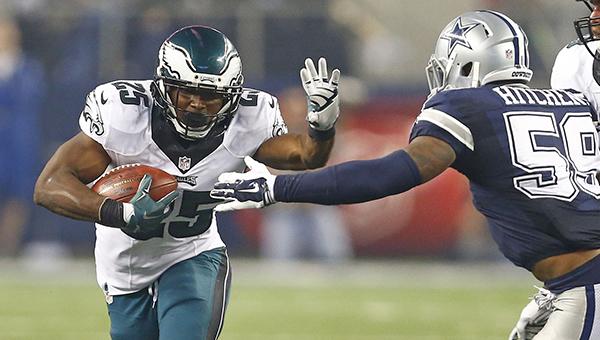Sunday, the Philadelphia Eagles and Buffalo Bills made perhaps the biggest move of the NFL offseason so far. The Eagles agreed to a trade, sending Pro Bowl running back LeSean McCoy to Buffalo in return for middle linebacker Kiko Alonso. While the trade can’t be finalized until next Tuesday, it is unlikely the teams back out of so public a trade. The moves stunned many and brings Philadelphia’s future many new questions.
From a financial standpoint, the trade makes sense for the Eagles. It will save around $10 million this season and next by swapping McCoy’s contract for the rookie deal of Alonso, valued at under $1 million the next two seasons. The Eagles cut defensive end Trent Cole and cornerback Cary Williams the same day, clearing even more cap space. If the end goal was to save money, the Eagles certainly accomplished that.
However, the trade does not make a whole lot of sense from a football perspective. McCoy rushed for 1,319 yards last year and led the NFL in rushing yards with 1,607 in 2013. While his touchdown total dropped from 11 to five, McCoy was still one of the best backs in the league. He can also catch the ball out of the backfield, with 300 receptions in his six seasons. He is one of the NFL’s best weapons.
The Eagles’ defense definitely needs the playmaking ability that Alonso brings to the table, as it struggled to produce last year. While Alonso missed all of the 2014 season after tearing an ACL, he was third in the NFL in tackles in his rookie season of 2013. He fills a position of real need for Philadelphia, and his addition should help the defense improve immediately.
However good Alonso is though, the Eagles’ offense arguably takes several steps backwards by losing its best player. The quarterback position is not a strength, regardless of whether it is Nick Foles, Michael Vick, Mark Sanchez or a free agent starting under center. Beyond current free agent wide receiver Jeremy Maclin, the Eagles lack a player who can be counted on to produce and score. Receivers Riley Cooper and Jordan Matthews are solid options, but neither can carry a large portion of the load. The Eagles now only have specialist Darren Sproles and Chris Polk on the roster as running backs and neither constitutes a steady starter.
The Eagles were able to save money and improve a weak defense, but there are many different ways they could have gone about addressing those issues. Adding Alonso at the expense of arguably the most valuable player on the roster is not an effective solution. The Eagles could have found help in free agency or the draft. Instead, it made a risky move that likely won’t pan out for the team.









